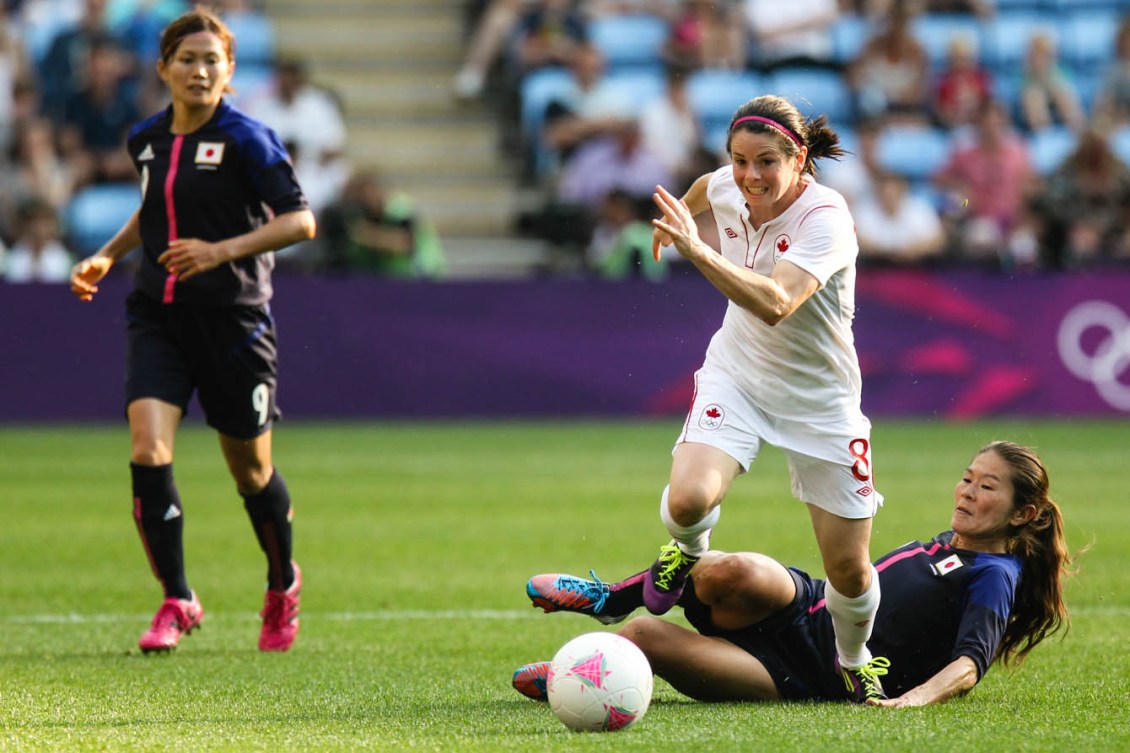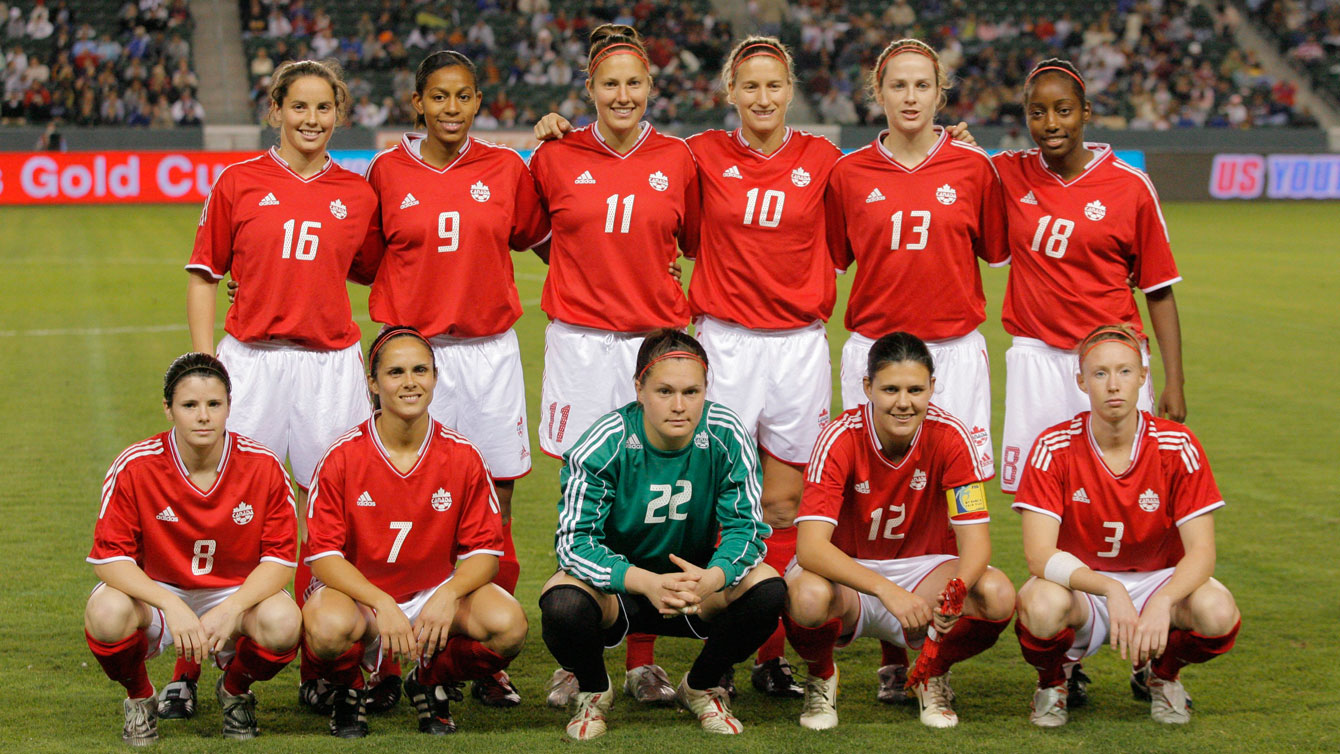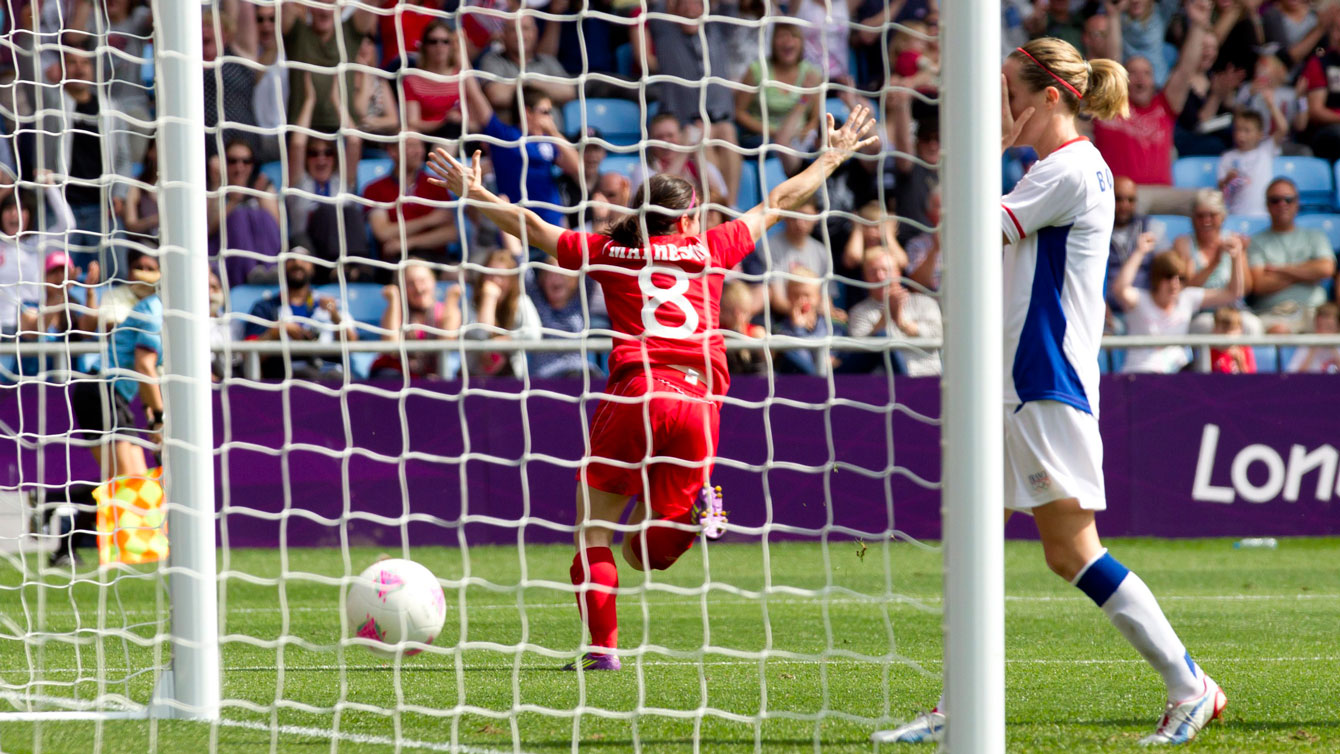Matheson goes for next big goal with key assist from Smith School of Business
A decade ago, Diana Matheson scored one of the biggest goals in Canadian soccer history.
Now, she’s hoping to help the nation achieve another momentous goal in the sport — establishing a professional women’s soccer league — and she’s applying her leadership, negotiation and financial skills to get the job done. Matheson is developing this business savvy through the Executive MBA that she’s working towards at Smith School of Business, Queen’s University.
At London 2012, Matheson scored the decisive goal as Canada won a historic Olympic bronze medal in women’s soccer. The playmaking midfielder, who represented Canada more than 200 times in her career, was also on the squad that won bronze at Rio 2016.
Injuries forced her into retirement early last year, just before Tokyo 2020. While she was excited to see Canada win Olympic gold in dramatic fashion, she also reflected on an issue that she and her former teammates have talked about for years.
Canada, she believes, is way past due for a professional women’s soccer league.
“If not now, then it’s never going to happen,” she says. “If Canada can win three Olympic medals in a row and win a gold medal like that, with most of Canada watching, and we’re still not going to build a league, then when’s it going to happen?”
The calls for such a league have grown louder in the Canadian soccer community in recent years, but Matheson isn’t simply adding her voice to the chorus. She’s coming up with a plan to make it happen.
Making an impact on and off the field
Before she retired, Matheson looked ahead to what her post-playing career would look like. She knew she wanted to stay involved in soccer but wasn’t certain about what role she might play.
Then, the opportunity presented itself for Matheson to use her decades of playing experience to help turn the dream of a Canadian women’s league into reality.

She was awarded a Game Plan Award to pursue her Executive MBA at Smith School of Business. That financial award is one component of Game Plan, Canada’s total athlete wellness program, which takes a holistic approach in supporting athletes during their high-performance careers and beyond.
Matheson began the EMBA program last August and is set to graduate in May 2023. She says she’s enjoying a “world class” experience in business education.
“The intensity and the learning of the classes and the quality of the professors has just been incredible,” she says. “I can’t say enough about the program.”
The importance of teamwork
Matheson is relishing the opportunity to build connections and get comfortable in a wide range of areas, from finance and economics to leadership and negotiation, as well as developing a strategic sense of how they’re all interrelated.
And as a former athlete coming into the business world for the first time, she appreciates the program’s team-based approach that lets her leverage the experience and knowledge of her fellow students.
“Being in a team, I think, is my natural state,” she says. “Getting to be a part of the team has been really helpful in that I can always pick their brains, ask what this acronym means, ask them how that relates to their business.”
Her next major step within the program is an individual project in which she’ll lay out specific recommendations to establish a women’s professional league.
On the men’s side, the Canadian Premier League played its first season in 2019. So there is precedent for a professional soccer league in Canada.
But what might things look like on the women’s side? That’s a question Matheson will look to answer in the coming months.
“On the business side of it, we need to find the right people to help us make this happen,” she says. “I think there is a path towards making a really innovative and exciting Canadian league.”
Evolution of the women’s game
The women’s professional game isn’t just gaining traction in Canada, it’s been on a steady upward trajectory for years. Established leagues in the United States, England and France boast some of the world’s top players, including many members of Team Canada.
And just this past April, Spanish club FC Barcelona set a new world record for attendance, packing 91,648 fans into their home stadium for a match against German side Wolfsburg.

It’s a far cry from when Matheson began her national team career in 2003. At the time, most of the team (including Matheson) weren’t playing professionally at all. Now, the women’s game has evolved to the point where next summer’s FIFA Women’s World Cup will feature 32 teams for the first time.
It’s why there’s such urgency within Canada to capitalize on the national team’s success and establish a league of our own. Matheson says it would be “such a shame” if the team’s high-profile victories didn’t translate into a professional league.
“Women’s soccer is growing at such a fast rate—sponsorship dollars, viewership dollars, everything,” she says. “Unless we build a league in Canada, the whole market’s just going to pass us by.”
For Matheson, the timing and circumstances of her post-playing transition couldn’t be better. And with the tools and connections she’s picking up through the Smith EMBA program, she’s focused on adding to her already impressive legacy in the sport.
“[Being in the program] has forced me to talk to all the people, put my thoughts on paper, gather all the data and the numbers,” she says.
“We literally have among the best women’s soccer players, coaches, et cetera, in the world—and we’ve got to get in soon if we want to capitalize on that and build something really Canadian.”
Smith School of Business is the exclusive business education partner of the Canadian Olympic Committee and a founding partner of Game Plan, Canada’s total athlete wellness program, helping athletes plan for success beyond sport. Diana Matheson is part of a network of more than 220 elite Canadian athletes who have been granted academic awards from Smith since the partnership was first launched in 2016.





